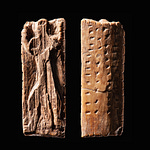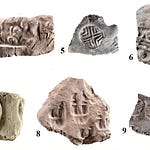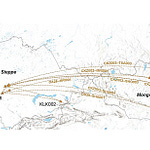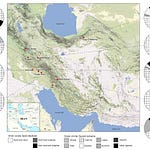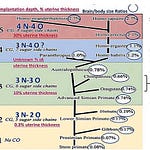The Ghosts In The Genome
When geneticists trace the ancestry of Canis familiaris, the story often begins with a single, ancient break: a population of Pleistocene wolves drifting into a new ecological orbit shaped by humans. It is a familiar tale. Wolves became dogs. Their genomes diverged. Their lives transformed. End of story.
Except it never was that simple.
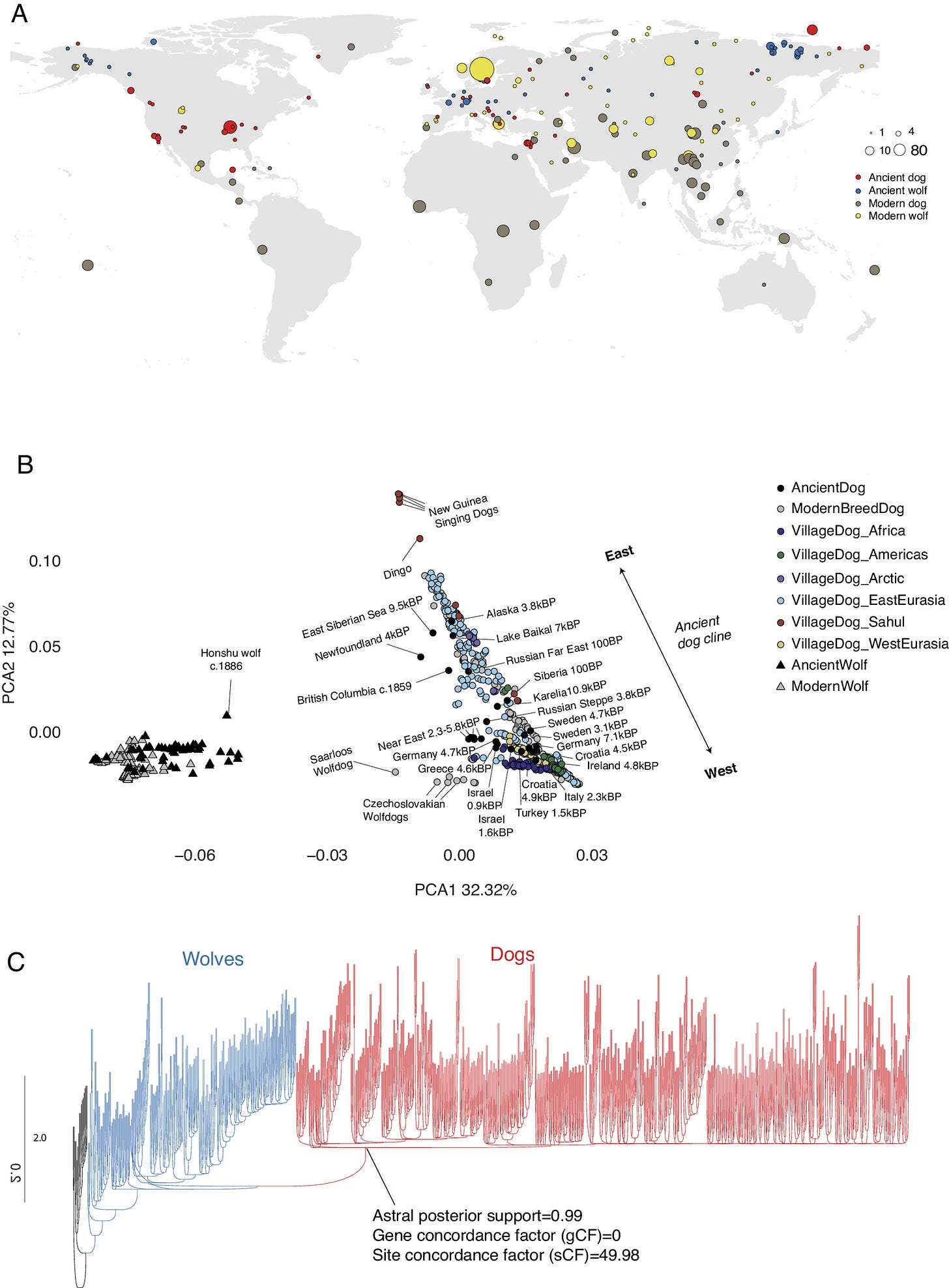
A new study in the Proceedings of the National Academy of Sciences1 argues that the clean separation between dogs and wolves belongs more to textbooks than to evolutionary reality. After examining thousands of genomes from across the past 20,000 years, researchers found that most modern dogs carry detectable traces of wolf ancestry introduced long after domestication. The discovery casts dog evolution as a more entangled and adaptive process, shaped by small but persistent infusions of wolf DNA.
“Hybridization leaves clues that do not disappear quietly,” notes Dr. Isabel Moretti, a comparative genomicist at the University of Zurich. “These low-level signals are faint, but their impact can reverberate across entire lineages.”
Far from undermining dogs’ identity, the findings reveal how they navigated human worlds by occasionally borrowing solutions from the very creatures that first inspired their transformation.




